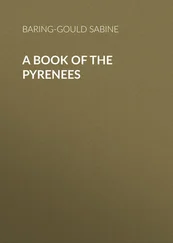Sabine Baring-Gould - Legends of the Patriarchs and Prophets
Здесь есть возможность читать онлайн «Sabine Baring-Gould - Legends of the Patriarchs and Prophets» — ознакомительный отрывок электронной книги совершенно бесплатно, а после прочтения отрывка купить полную версию. В некоторых случаях можно слушать аудио, скачать через торрент в формате fb2 и присутствует краткое содержание. Жанр: foreign_antique, foreign_prose, на английском языке. Описание произведения, (предисловие) а так же отзывы посетителей доступны на портале библиотеки ЛибКат.
- Название:Legends of the Patriarchs and Prophets
- Автор:
- Жанр:
- Год:неизвестен
- ISBN:нет данных
- Рейтинг книги:3 / 5. Голосов: 1
-
Избранное:Добавить в избранное
- Отзывы:
-
Ваша оценка:
- 60
- 1
- 2
- 3
- 4
- 5
Legends of the Patriarchs and Prophets: краткое содержание, описание и аннотация
Предлагаем к чтению аннотацию, описание, краткое содержание или предисловие (зависит от того, что написал сам автор книги «Legends of the Patriarchs and Prophets»). Если вы не нашли необходимую информацию о книге — напишите в комментариях, мы постараемся отыскать её.
Legends of the Patriarchs and Prophets — читать онлайн ознакомительный отрывок
Ниже представлен текст книги, разбитый по страницам. Система сохранения места последней прочитанной страницы, позволяет с удобством читать онлайн бесплатно книгу «Legends of the Patriarchs and Prophets», без необходимости каждый раз заново искать на чём Вы остановились. Поставьте закладку, и сможете в любой момент перейти на страницу, на которой закончили чтение.
Интервал:
Закладка:
Abraham Ecchellensis gives the following account of Lilith, and her doings: – “There are some who do not regard spectres as simple devils, but suppose them to be of a mixed nature, part demoniacal, part human, and to have had their origin from Lilith, Adam’s first wife, by Eblis, the prince of the devils. This fable has been transmitted to the Arabs from Jewish sources, by some converts of Mahomet from Cabbalism and Rabbinism, who have transferred all the Jewish fooleries to the Arabs. They gave to Adam a wife, formed of clay, along with Adam, and called her Lilith; resting on the Scripture, ‘ male and female created He them :’ 55 55 Gen. i. 27.
but when this woman, on account of her simultaneous creation with him, became proud and a vexation to her husband, God expelled her from Paradise, and then said, ‘ It is not good that the man should be alone; I will make him a help meet for him .’ 56 56 Ibid., ii. 18.
And this they confirm by the words of Adam when he saw the woman fashioned from his rib, ‘ This is now bone of my bone, and flesh of my flesh ,’ 57 57 Ibid., 23.
which is as much as to say, Now God has given me a wife and companion, suitable to me, taken from my bone and flesh, but the other wife he gave me was not of my bone and flesh, and therefore was not a suitable companion and wife for me.
“But Lilith, after she was expelled from Paradise, is said to have married the Devil, by whom she had children, who are called Jins. These were endued with six qualities, of which they share three with men, and three with devils. Like men, they generate in their own likeness, eat food, and die. Like devils, they are winged, and they fly where they list with great velocity; they are invisible, and they can pass through solid substances without injuring them. This race of Jins is supposed to be less noxious to men, and indeed to live in some familiarity and friendship with them, as in part sharers of their nature. The author of the history and acts of Alexander of Macedon relates, that in a certain region of India, on certain hours of the day, the young Jins assume a human form, and appear openly and play games with the native children of human parents quite familiarly.” 58 58 Abraham Ecchellensis, Hist. Arabum, p. 268.
It must not be supposed that women, as they are now, are at all comparable to Eve in her pristine beauty; on this point the Talmud says: “All women in respect of Sarah are like monkeys in respect of men. But Sarah can no more be compared to Eve than can a monkey be compared with a man. In like manner it may be said, if any comparison could be drawn between Eve and Adam, she stood to him in the same relation of beauty as does a monkey to a man; but if you were to compare Adam with God, Adam would be the monkey, and God the man.” 59 59 Talmud, Tract. Bava Bathra.
Literary ladies may point to the primal mother as the first authoress; for a Gospel of Eve existed in the times of S. Epiphanius, who mentions it as being in repute among the Gnostics. 60 60 S. Epiphan. Hæres., xxvi.
And the Mussulmans attribute to her a volume of Prophecies which were written at her dictation by the Angel Raphael. 61 61 Tho. Bangius, Cœlum Orientis, p. 103.
All ladies will be glad to learn that there is a tradition, Manichean, it is true, and anathematized by S. Clement, which nevertheless contains a large element of truth; it is to this effect, that Adam, when made, was like a beast, coarse, rude, and inanimate, but that from Eve he received his upright position, his polish, and his spirituality. 62 62 S. Clementi Recog., c. iv.
IV
THE FALL OF MAN
What was the tree of which our first parents were forbidden to eat? In Midrash, f. 7, the Rabbi Mayer says it was a wheat-tree; the Rabbi Jehuda, that it was a grape-vine; the Rabbi Aba, that it was a Paradise-apple; the Rabbi Josse, that it was a fig-tree: therefore it was that, when driven out of Paradise, they used its leaves for a covering.
The Persian story, adopted by the Arabs, is that the forbidden fruit was wheat, and that it grew on a tree whose trunk resembled gold and its branches silver. Each branch bore five shining ears, and each ear contained five grains as big as the eggs of an ostrich, as fragrant as musk, and as sweet as honey. The people of Southern America suppose it was the banana, whose fibres form the cross, and they say that thus, in it, Adam discovered the mystery of the Redemption. The inhabitants of the island of St. Vincent think it was the tobacco plant. But, according to an Iroquois legend, the great mother of the human race lost heaven for a pot of bears’ grease. 63 63 Lafitau, Mœurs des Sauvages Amériquaines, i. p. 93.
The story is as follows: – The first men living alone were,
“By the viewless winds,
Blown with resistless violence round about
The pendant world.”
Fearing the extinction of their race, and having learnt that a woman dwelt somewhere in the heavens, they deputed one of their number to seek her out. This messenger of mankind was borne to the skies on the wings of assembled birds; and then watched at the foot of a tree till the woman came forth to draw water from a neighboring well. On her approach he addressed her, offered her bears’ fat, and then seduced her. The Deity perceiving her shame, in his anger thrust her out of heaven. The tortoise received her on his back; and from the depths of the sea the fish brought clay, and thus gradually built up an island on which the universal mother brought forth her first twins.
According to the traditions of the Lamaic faith, the first men lived to the age of sixty thousand years. 64 64 Pallas, Reise, i. p. 334.
They were invisibly nourished, and were able to raise themselves at will to the heavens. In this age of the world the transmigration of souls was universal, – all men were twice born; and in this age it was that the thousand gods settled themselves in heaven. In an unlucky hour the earth produced a honey-sweet substance: one of the men lusted after it, tasted and gave to his companions; the consequence was, that the men lost the power of rising from off the earth, their size, and their wisdom, and were obliged to satisfy themselves with food produced by the soil.
The Nepaul account of the beginning of sin is as follows: “Originally,” says one of the Tantras, “the earth was uninhabited. In those times the inhabitants of Abhaswara, one of the heavenly mansions, used frequently to visit the earth, and thence speedily return. It happened at length that when a few of these beings, who though half male, half female, through the innocence of their minds had never noticed their distinction of sex, came as usual to the earth, Adi Buddha suddenly created in them so violent a longing to eat, that they ate some of the earth, which had the taste of almonds; and by eating it they lost their power of flying back to heaven, and so they remained on the earth. They were now constrained to eat the fruits of the earth for sustenance.” 65 65 Hodgson, Buddhism, p. 63.
According to the Cinghalese, the Brahmas inhabited the higher regions of the air, where they enjoyed perfect happiness. “But it came to pass that one of them beholding the earth said to himself, What thing is this? and with one of his fingers having touched the earth, he put it to the tip of his tongue, and perceived the same to be deliciously sweet; from that time all the Brahmas ate of the sweet earth for the space of sixty thousand years. In the mean time, having coveted in their hearts the enjoyment of this earth, they began to say to one another, This part is mine and that is thine; and so fixing boundaries to their respective shares, divided the earth between them. On account of the Brahmas having been guilty of covetousness, the earth lost its sweetness, and then brought forth a kind of mushroom,” which the Brahmas also coveted and divided, and of which they were also deprived; and thus they proceeded from food to food, till their nature was changed, and from spirits they became men, imbibed wicked ideas, and lost their ancient glory. 66 66 Upham, Sacred Books of Ceylon, iii. 156.
Интервал:
Закладка:
Похожие книги на «Legends of the Patriarchs and Prophets»
Представляем Вашему вниманию похожие книги на «Legends of the Patriarchs and Prophets» списком для выбора. Мы отобрали схожую по названию и смыслу литературу в надежде предоставить читателям больше вариантов отыскать новые, интересные, ещё непрочитанные произведения.
Обсуждение, отзывы о книге «Legends of the Patriarchs and Prophets» и просто собственные мнения читателей. Оставьте ваши комментарии, напишите, что Вы думаете о произведении, его смысле или главных героях. Укажите что конкретно понравилось, а что нет, и почему Вы так считаете.












